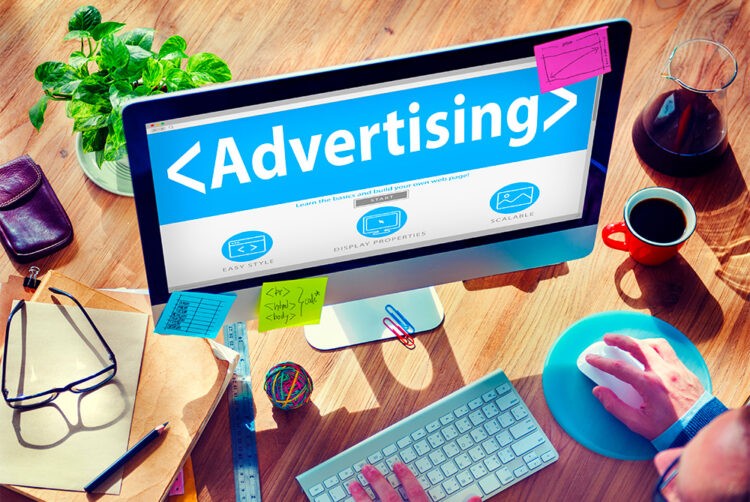‘Wasteful’, ‘overblown’, ‘plagued’ and ‘riddled’? The denigration of digital continues

Opinion
Please acknowledge where progress is being made and don’t ignore the initiatives that are changing the digital ecosystem for the better, writes the IAB’s chief digital officer.
“The online advertising bubble has burst” declared Nick Manning in his latest column for The Media Leader — a 1,300 word take-down of the “overblown” digital advertising sector in which he dubs online display “a hugely wasteful exercise”, calls out the “vast sums [that] have been wasted by advertisers on artificially pumping up platform and adtech revenues”, and condemns an “eco-system riddled with dark holes”.
Suffice to say, it’s clear that Nick feels little love when it comes to digital. By the end of his piece, you’re left with the overwhelming impression that digital advertising — which accounts for three quarters of all ad spend in the UK — is not only ineffective and inefficient, but it’s also on the brink of imploding.
Nick isn’t the first industry commentator to take aim at digital advertising, and I’m under no illusion that he will be the last. The rhetoric that digital is rife with risk is so well-worn that it’s getting somewhat stale and — while it’s important that issues are called out — solely dwelling on the “problems plaguing online advertising” isn’t helpful or constructive.
Reading Nick’s piece – and plenty of others published in the trade press — you could be forgiven for thinking that digital advertising is a quagmire of fraud, bad practice and opacity that nobody has the slightest bit of interest in fixing. This is patently untrue and does no justice to the huge amount of work that the industry has put in to develop self-regulatory initiatives over the past decade.
From the Gold Standard to the work done by ISBA, AOP, IPA and IAB on the financial audit toolkit, there is so much going on behind the scenes to address issues like ad fraud and supply chain transparency. Admittedly, it makes for a less rollicking read, but erasing these initiatives from the dialogue feeds the overarching, one-sided narrative that digital is decidedly dodgy.
In the spirit of open and balanced debate, there are three points in particular that Nick makes that deserve closer attention…
That things have ‘gone wrong’ for digital advertising
Nick points to the closure of Vice and BuzzFeed News as evidence that the digital bubble has burst and “the old order is fading”. This makes for a compelling story, but is it rooted in reality? In my view, no. While there is no denying that digital advertising is changing fast (as it always has), it’s a stretch to claim that “advertising as a basis for the funding of many internet-led businesses, including adtech, may also prove unsustainable”.
By contrast, IAB UK’s latest Digital Adspend report with PwC shows that the industry is seeing stable and resilient growth — up 11% in 2022 despite the fact that it was an economically challenging year. What’s more, growth is being felt across the ecosystem with the wider industry growing at a faster rate (+20%) than the top five largest players (+9%). In our current context of economic uncertainty no growth should be sniffed at, but it’s particularly encouraging for the long-term sustainability of digital advertising that spend isn’t just centred on a few.
That ‘vast sums have been wasted’ by advertisers
Digital advertising has been on media plans for over two decades now and — as Nick points out — it has attracted a lot of advertisers’ budgets, to the point where advertising and digital are largely synonymous. But do you think that advertisers would be continuing to invest in digital advertising if they weren’t seeing returns? The idea that brands are blindly ploughing money into online channels when it’s “not justified by effectiveness nor efficiency” verges on patronising and is a claim that needs to be backed up with sound evidence.
As with all channels — on or offline — advertisers have the agency to ensure that their spend delivers. By choosing known and trusted partners to work with that are upholding industry best practice and utilising the tools available, advertisers can and are ensuring that their digital spend isn’t wasted.
That adtech has little value
There is a dominant undercurrent throughout Nick’s piece that casts digital advertising as “an eco-system riddled with dark holes” and intermediaries as grabbing spend: “We are witnessing the compression of the adtech ‘daisy chain’ as the intermediaries aim to take a bigger share of the meaty transaction charges that still often make online display advertising a hugely wasteful exercise.”
Stating this but not acknowledging the value that adtech provides for advertisers compounds the view that it is murky and disposable. In reality, adtech is a crucial facet of the digital advertising supply chain delivering benefits including brand safety controls, improved targeting, campaign verification, first-party data integration and measurement. It is also vastly more transparent today because intermediaries have leant into and embraced cross-industry standardisation. That’s not to say there isn’t room for further positive change, but the constant characterisation of adtech as greedy middle men isn’t informed or constructive.
So, my message to Nick? Please acknowledge where progress is being made and don’t ignore the initiatives that are changing the digital ecosystem for the better — it’s only by making them a staple part of the conversation that we move forward.
I wholeheartedly agree with your overriding message that creativity and effectiveness should be prioritised, but I don’t believe that we need to “reinvent online advertising” to achieve that. We need to continue to evolve it to meet advertisers’ needs, continue to tackle shared challenges and continue to pioneer new standards. This is already happening and it’s high time that digital doom mongers caught up.

Tim Elkington is chief digital officer at the IAB UK




